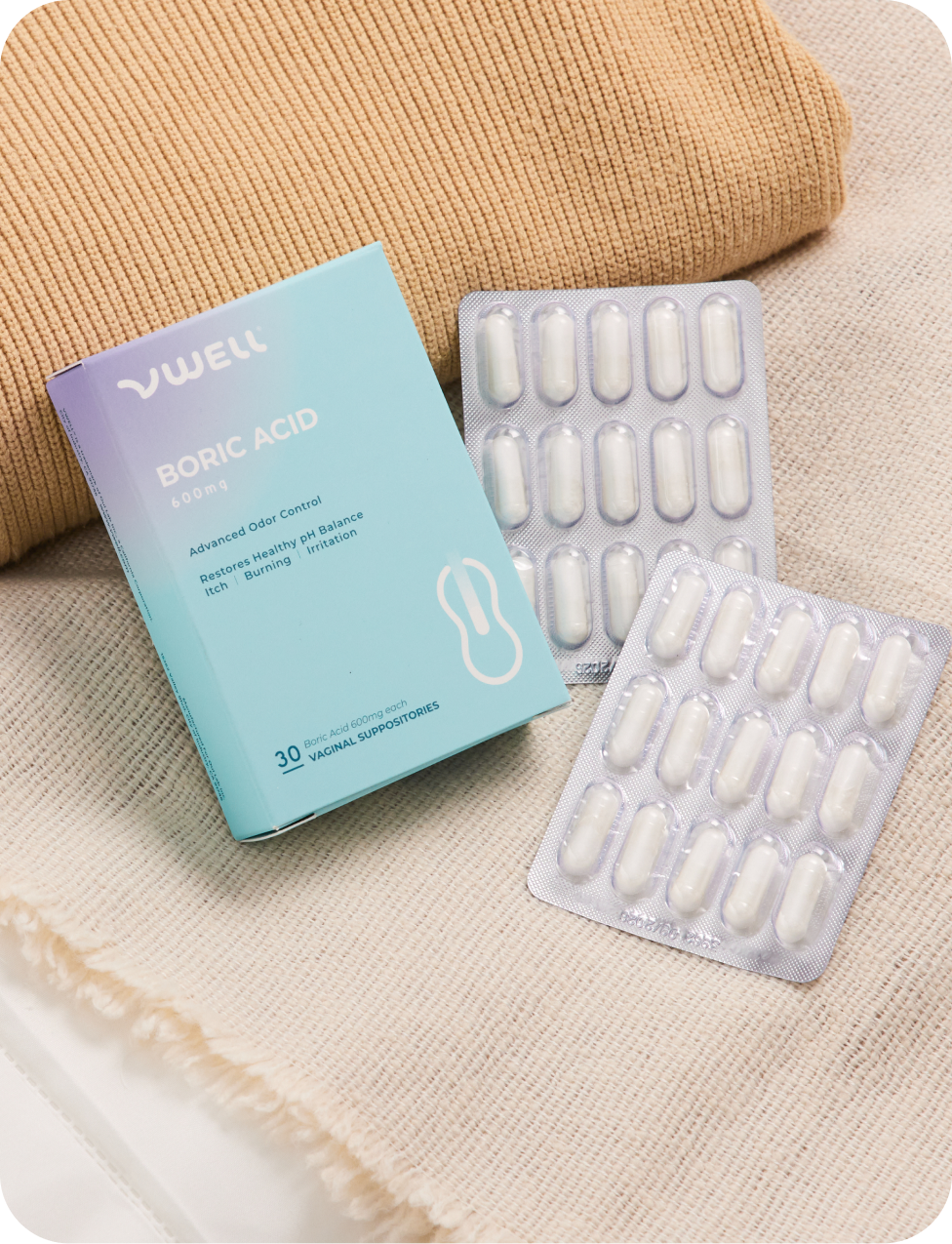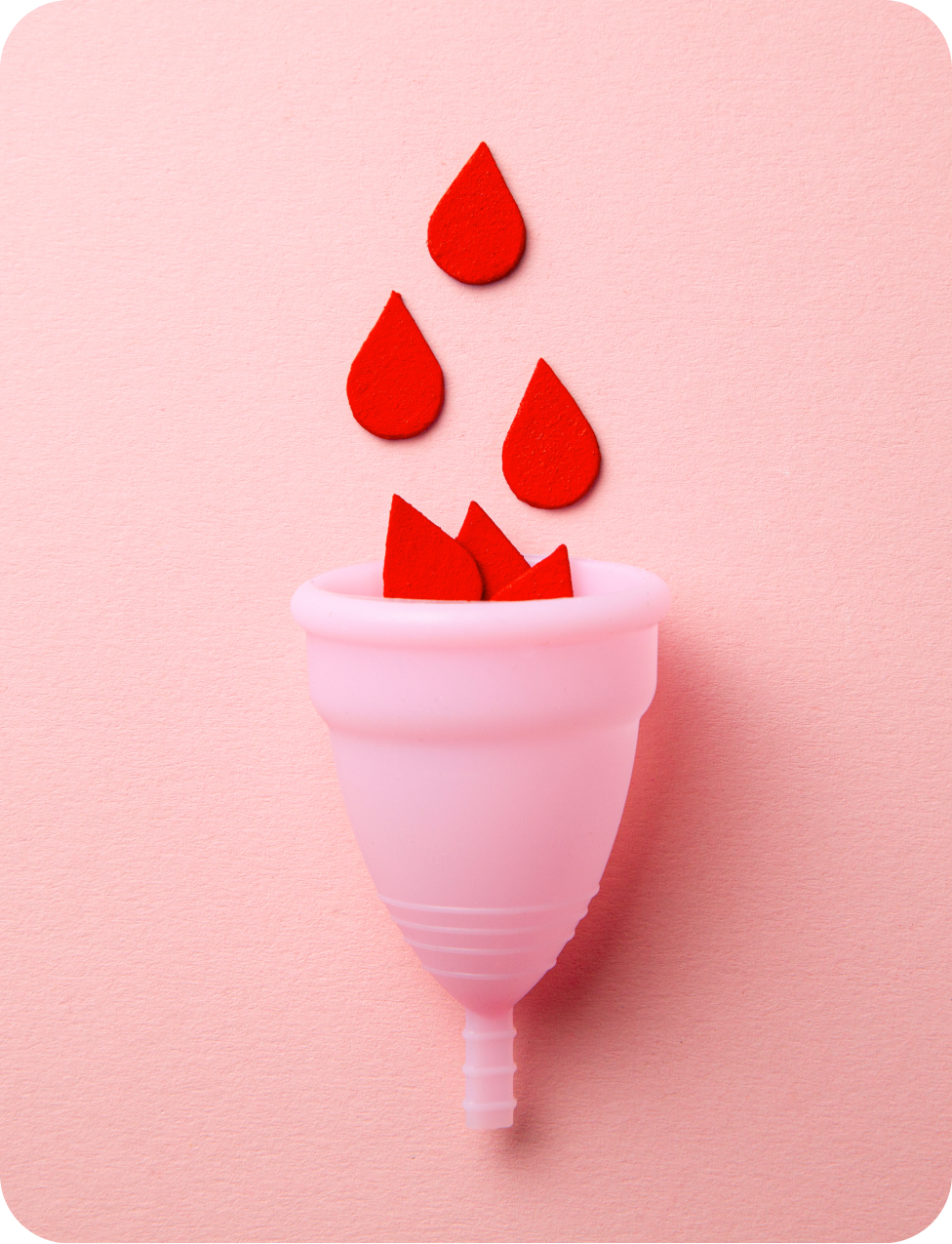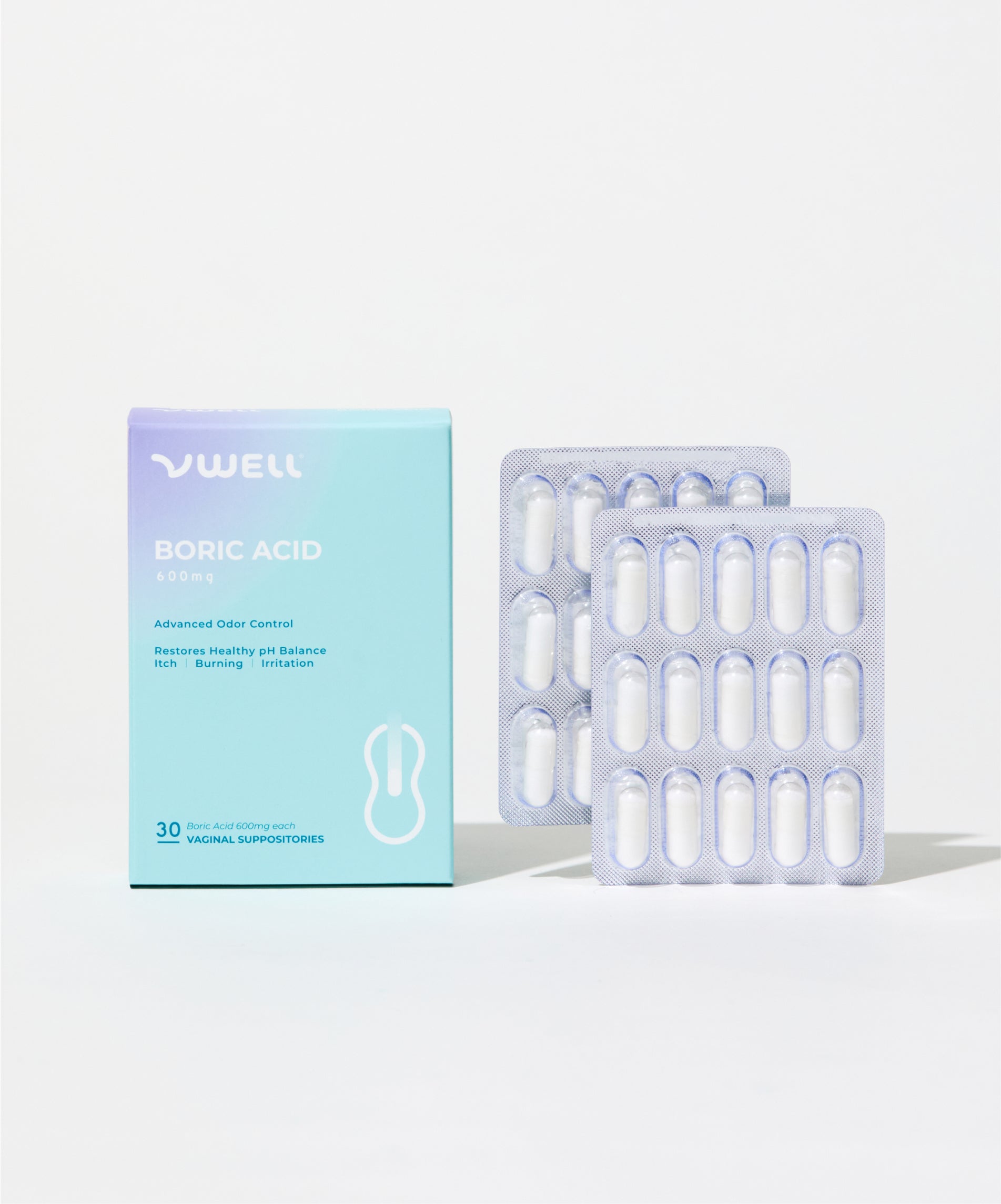If you're dealing with your period and wondering whether it's safe to use boric acid suppositories right now, you're asking the right question. Many people face this dilemma when trying to manage vaginal health during menstruation, especially if they're prone to recurring yeast infections or bacterial vaginosis that seem to flare up around that time of the month.
The short answer? Boric acid is generally safe to use during your period, but there are important considerations about effectiveness and timing that you should know before proceeding.
Key Takeaways: Boric Acid During Menstruation
-
Boric acid is generally safe during your period when used as directed
-
Menstrual flow may reduce effectiveness by diluting the suppository
-
Some healthcare providers recommend waiting until after your period for best results
-
Always avoid tampons while using boric acid suppositories
-
Consult your healthcare provider, especially for first-time use
What Exactly Is Boric Acid?
Boric acid might sound intense, but it’s a naturally occurring compound derived from boron, a trace mineral found in seawater, volcanic springs, and even some fruits and veggies. It’s been used medicinally for over a century, and today, you’ll find it most often in the form of vaginal suppositories, each typically containing about 600mg of it.
When inserted into the vagina, boric acid helps create a more acidic environment, closer to a healthy vaginal pH of 3.8 to 4.5. That’s key because many infections, including yeast infections and bacterial vaginosis (BV), tend to flare up when the pH level becomes too alkaline. In short, boric acid helps reset the balance.
Why People Turn to Boric Acid During Their Period
Your period can throw off your vaginal balance in more ways than one, which is why some people turn to boric acid as a way to help reset things:
-
pH Changes During Menstruation: Menstrual blood has a pH of around 7.4, which is more alkaline than the vagina's natural acidic environment. This temporary pH shift can disrupt the delicate balance of vaginal microorganisms, potentially leading to infections.
-
Increased Moisture and Warmth: Menstrual products like pads and tampons can create a warm, moist environment that may promote bacterial or fungal growth, especially if not changed frequently enough.
-
Hormonal Fluctuations: The hormonal changes that occur during the menstrual cycle can affect vaginal discharge, immune function, and the overall vaginal ecosystem.
-
Recurring Infections: Some people experience recurring bacterial vaginosis or yeast infections that seem to coincide with their menstrual cycle, prompting them to seek preventive treatments.
-
Odor Concerns: Normal menstrual odor combined with potential bacterial imbalances can cause discomfort and self-consciousness.
All of this has led many to wonder: can boric acid help during a period, not just after?
Can You Use Boric Acid While On Your Period?
Here’s the deal: boric acid is generally considered safe for vaginal use even during your period as long as you’re using it as directed. That said, there are a few caveats.
Some healthcare providers say it’s fine to use it throughout your cycle, while others suggest waiting until after your period ends for best results. That’s because menstrual flow can dilute or wash out the suppository before it gets a chance to work its magic. You may still get some benefit, but it might not be as effective.
The most important thing? Always check with your OB-GYN, especially if it’s your first time using boric acid or if you're unsure whether your symptoms are from a yeast infection, BV, or something else entirely. And if you're pregnant, trying to conceive, or breastfeeding, skip it because boric acid is not recommended in those cases.
How Boric Acid Works for Vaginal Health
Think of boric acid as a gentle bouncer for your vagina’s ecosystem. It helps regulate pH, discourages the overgrowth of bad bacteria and yeast, and supports a healthier vaginal environment overall. It may also help break down slimy biofilm layers that some bacteria form to protect themselves, which is why boric acid is sometimes recommended when other treatments don’t seem to work.
Studies show boric acid can be highly effective in treating yeast infections, even stubborn or recurrent ones. It’s also been used as a secondary option for bacterial vaginosis when traditional antibiotics don’t fully resolve the issue.
Of course, menstruation might interrupt this process and compromise its effectiveness. Blood flow can dilute or flush out the suppository, so if you're using boric acid during your period, you might notice more discharge or a slightly messier experience. Still, it’s not harmful, just something to be aware of.
Can I Use a Tampon With Boric Acid?
When using boric acid for the first time, there are a few things you might notice. A bit of vaginal discharge is normal as that's just the capsule dissolving. Some people experience mild irritation, dryness, or a light burning sensation, but those symptoms usually pass quickly. If you feel any severe discomfort, stop using it and talk to your doctor.
If you typically use tampons, it’s best to switch to pads or liners while using boric acid. That way, the capsule can fully dissolve and work as intended.
While many people wait until after their period to start treatment, there are also times when it’s best to avoid boric acid altogether. Skip it if you’re breastfeeding, have open cuts or sores in the vaginal area, or are managing health conditions like kidney disease or a weakened immune system.
How to Insert a Boric Acid Suppository (With or Without an Applicator)
If you're new to boric acid suppositories, don't worry. Inserting them is pretty simple, and there’s no one “right” way. Whether you prefer using an applicator or going hands-on, it’s all about doing what feels most comfortable and convenient for you.
Using an Applicator
Some people prefer using an applicator for more controlled insertion, especially when using boric acid regularly or during their period, when things can feel a little messier. VWELL’s MaxComfort™ Tapered Vaginal Suppository Applicator features a universal design that fits most vaginal suppositories and can also be used with vaginal gels and creams, making them versatile tools for intimate care routines.

Here’s how to insert an applicator:
-
Wash your hands thoroughly.
-
Unwrap the applicator and take one boric acid suppository.
-
Insert the capsule into the open end of the applicator.
-
Get into a comfortable position: either stand with feet hip-width apart or lie on your back with your knees bent.
-
Hold the applicator by the opposite end from the suppository.
-
Gently insert the applicator into your vagina, as far as is comfortable.
-
Press the plunger to release the suppository.
-
Remove the applicator and you’re done!
If You're Inserting It Without an Applicator
Prefer a more hands-on approach? You can insert a VWELL Boric Acid Suppository using just your fingers.
Here’s how:
-
Wash your hands thoroughly.
-
Get into a comfortable position: either stand with your feet slightly apart or lie on your back with knees bent.
-
Take one boric acid suppository and use your fingers to gently insert it into your vagina.
-
Push it in far enough that you can no longer feel it, similar to inserting a tampon without an applicator.
-
That’s it!
Conclusion
Using boric acid during your period is generally safe, but how well it works can depend on your timing, symptoms, and body. For some, it’s a much-needed tool for managing recurring issues. For others, it’s better saved for post-period care. Either way, it’s something to use thoughtfully, ideally with guidance from a healthcare provider.
At the end of the day, vaginal health during your period isn’t about one single solution. It comes down to good hygiene, choosing the right products, and staying in tune with what your body needs. Boric acid can be part of that routine, but it’s all about finding what works best for you.
FAQ
-
Can I use a menstrual cup or tampon while using boric acid?
It’s best to avoid using a tampon or menstrual cup at the same time as a boric acid suppository. These products can absorb or block the suppository, making it less effective. If you're using boric acid during your period, consider switching to a pad or liner instead.
-
Can boric acid prevent period-related infections?
Some people use boric acid to support vaginal balance and prevent yeast or BV flare-ups, especially around their cycle. However, using it preventively should always be done with guidance from your healthcare provider. Overuse may disrupt your natural flora and do more harm than good.
-
What should I do if I experience severe irritation?
If you feel burning, pain, or any unusual discomfort, stop using suppositories right away. Rinse the area with water if necessary, and consult your doctor. These symptoms may be a sign of an allergic reaction or incorrect use.



